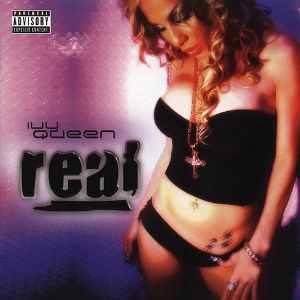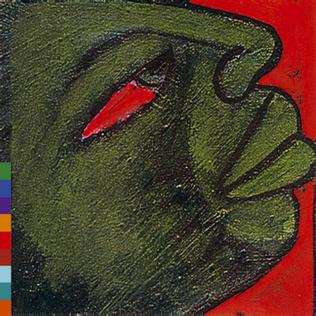
Nelly Kim Furtado is a Canadian singer and songwriter. She has sold over 45 million records, including 35 million in album sales worldwide, making her one of the most successful Canadian artists. Critics have noted Furtado's musical versatility and experimentation with genres.
The native folk music of Mozambique has been highly influenced by Portuguese colonisation and local language forms. The most popular style of modern dance music is marrabenta. Mozambican music also influenced another Lusophone music in Brazil, like maxixe, and mozambique style in Cuba and New York City.

Rosa María López Cortés is a Spanish singer of various musical genres.
Latin American music has long influenced popular music in the United States. Within the industry, "Latin music" has influenced jazz, rhythm and blues, and country music, even giving rise to unique US styles of music, including salsa, New Mexico, Tejano, and Western. Fusion genres such as Chicano rock, Nuyorican rap, and Chicano rap have emerged from Latin communities within the United States.

Kizomba is a social dance and music genre that originated in Angola during late 1970s to early 1980s. Kizomba is a national heritage of Angola and means "party" in Kimbundu. Traditionally, kizomba was danced with family, friends, and acquaintances in social settings such as parties and weddings, but is nowadays also enjoyed in clubs as well as other settings such as Kizomba Na Rua that are popular in Luanda.

Melanie Hernandez Calumpad, known professionally as Kyla, is a Filipino singer, actress, and television personality. Known for her vocal range and melismatic singing style, she has been credited with helping to redefine R&B and soul music in the Philippines. Her sound became a catalyst in the growth and popularity of the music genres, making her a prominent pop culture figure. She has been cited by media outlets as the country's "Queen of R&B".

Maribel Pérez, best known by her stage name Belle Perez, is a Belgian-Spanish musician and songwriter.
Marrabenta is a popular style of Mozambican dance music combining traditional Mozambican dance rhythms with Portuguese folk music. It was developed in Maputo, the capital city of Mozambique, during the 1930s and 1940s.

Pau-Latina is the seventh studio album by Mexican singer Paulina Rubio, released on February 10, 2004, by Universal Latino. Musically, Rubio wanted to make a "futuristic folk" or a "cocktail of different music genres", thus incorporating eclectic latin music in its sound with instrumentation from techno beats, guitars, drums, synthesizers, strings and Spanish guitars musical instruments. Its themes range from love, dancing, friendship and feminist. Contributions to the album's production came from a wide range of producers, including Emilio Estefan, Chris Rodríguez, Toy Hernández, Marcello Acevedo and Sergio George.
The culture of Mozambique is in large part derived from its history of Bantu, Swahili, and Portuguese rule, and has expanded since independence in 1975. The majority of its inhabitants are black Africans. Its main language is Portuguese. Its median religion is Roman Catholicism, but only about 40% of the inhabitants are Christian. It has a rich history in the areas of arts, cuisine, and entertainment.

Real is the fourth studio album by Puerto Rican reggaetón recording artist Ivy Queen, released on November 21, 2004, by Universal Music Latino. Initially to be Queen's debut full-length English-language studio album, it featured collaborations with hip hop and fellow Latino artists Hector El Father, Fat Joe, Getto & Gastam, La India, Gran Omar and Mickey Perfecto. The album was primarily produced by Rafi Mercenario, and included guest production by American producer Swizz Beatz, Puerto Rican producers Ecko, Noriega, Monserrate and DJ Nelson. The executive producers were Goguito "Willy" Guadalupe, Gran Omar and Ivy Queen.

"Lambada", also known as "Chorando Se Foi (Lambada)", or "Llorando Se Fue (Lambada)" (both meaning "crying, he/she went away" in Portuguese and Spanish, respectively), is a song by French-Brazilian pop group Kaoma. It features guest vocals by Brazilian vocalist Loalwa Braz and was released as the first single from Kaoma's 1989 debut album, Worldbeat. The accompanying music video, filmed in June 1989 in Cocos beach in the city of Trancoso, in the Brazilian state of Bahia, featured the Brazilian child duo Chico & Roberta.

"Baila Esta Cumbia" is a song recorded by American Tejano singer Selena for her second studio album, Ven Conmigo (1990). It was released as the second single by EMI Latin on August 28, 1990, behind "Ya Ves". It was composed by her brother–producer A.B. Quintanilla, and Selena y Los Dinos backup dancer, Pete Astudillo. The recording is an up-tempo Mexican cumbia song. It was well received by music critics who enjoyed its cumbia-feel and rhythm.
Miosoty is an American Latin singer, dancer, songwriter, actress, choreographer, television personality, producer, and model. Her career began as a teenager, singing merengue for nearly two years with popular Dominican singer Wilfrido Vargas and five years with The New York Band. She branched off as a solo salsa singer in 1997 during the resurgence of the genre and other forms of Latin music. Although a member of the younger generation of Latin music artists, she is best known for her classic singing style.
Humberto Carlos Benfica, known as Wazimbo, is a Mozambican vocalist considered one of the greatest voices of Mozambique and one of the most famous marrabenta singers. Born in Chibuto, in Gaza Province, Mozambique he moved to the capital — Lourenço Marques — where he grew up in the popular neighborhood Mafalala. There he started as a vocal member for the local group "Silverstars" and then "Geiziers". Later, he joined Orchestra Marrabenta Star de Moçambique.
Stewart Sukuma, born Luis Pereira in 1963, is a Mozambican singer. Sukuma's stage name means "rise up" in Xitsonga and "push" in Swahili. He was born in Cuamba, Niassa Province. Coming from a modest family, Sukuma loved music; he moved to the Mozambican capital of Maputo in 1977, learning to play percussion instruments, guitar and piano. Five years later, Sukuma joined a musical group as a vocalist. He received a Ngoma Mozambique award in 1983, and has been described as "Mozambique's most popular male vocalist". Sukuma's songs include "Felizminha", "Xitchuketa Marrabenta", "Sumanga", "Male" and "Why". He sings in Portuguese, English, Swahili, Echwabo and Xitsonga.
Elisa Domingas Jamisse, better known by her stage name Mingas, is a Mozambican singer. Born in the capital city, Maputo in Mozambique Mingas started to sing at a very early age. Her music is a mixture of Afro sounds that gives prominence to the rhythms of the Chope people of southern Mozambique, and she is one of the most famous singers of Marrabenta. Her career is marked with big hits and collaborations with major African singers like Miriam Makeba, Hugh Masekela, Angélique Kidjo, Baba Maal, Yvonne Chaka Chaka, Jimmy Dludlu, Gilberto Gil, among others.

Valerie Morales, also known simply as Valerie or Valerie Flow, is a Puerto Rican singer who has worked with a variety of musical performers including Daddy Yankee, Wisin Y Yandel, and Hector & Tito, among others. She was born and raised in Fajardo, Puerto Rico. Morales began her acting career in 2001 and her musical career in 1996.

Marjurugenta is the debut album by Mozambican marrabenta band Ghorwane, recorded in August 1991 at Real World Studios but not released until September 1993 by Real World Records. The band had built up a reputation in their native country throughout the 1980s for their unique urban dance musical style and politically conscious lyrics, pulling from genres such as marrabenta and xigubu. After being denied visas to play at a European festival in 1987, it soon became possible for the band to play the world music-celebrating WOMAD festival in 1990. While on their trip to the festival, the band were approached by the WOMAD-affiliated Real World Records to record their debut album.
Edson Amândio Maria Lopes da Luz, better known by his stage name Azagaia, was a Mozambican rapper known for his songs about political issues and social justice in Mozambique. In 2014, he was described as "the most influential Mozambican rapper", and his death in 2023 led to widespread marches throughout the country in his honour as well as in support of his political ideas.










